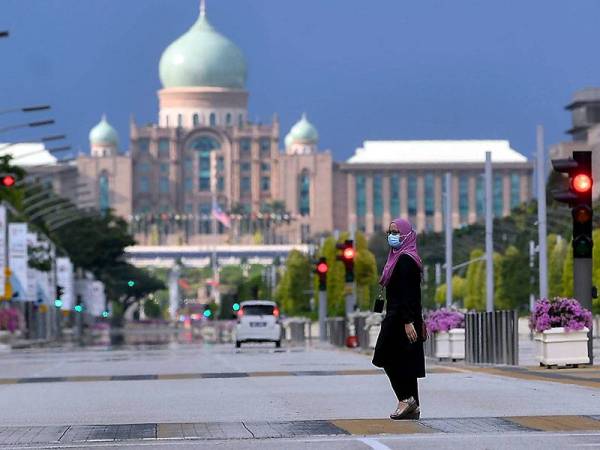By Aznan Mat Piah
Not often does Malaysia get a high praise and attention in the foreign media for what it has gone through, especially during the present trying time.
Malaysias recent experience in handling the spread of COVID-19 pandemic has drawn the attention of an Australian researcher whose report was published in the international media.
Stewart Nixon, a research scholar at the Crawford School of Public Policy, the Australian National University, who was experiencing the lockdown first-hand as a research visitor at a local university here, had written an article “Malaysia beats brutal COVID-19 expectations” which was published in the East Asia Forum (30 April) and the Channel News Asia (Singapore) on 4 May recently.
The commentary highlighted that the countrys handling of the COVID-19 outbreak œmay seem bungled to the casual observer but œMalaysias response deserves greater recognition as a meaningful example for countries that have insecure borders, significant mobile and vulnerable populations, larger households in denser living conditions and less than ideal political situations.
It said Malaysias surge in COVID-19 cases came just two weeks after a political crisis saw the government change hands outside of the election cycle.
Highlighting Malaysias efforts spearheaded by the reassuring leadership of Health Director General, Datuk Dr. Noor Hisham Abdullah, œwhose resume combines a depth of medical knowledge with formidable public policy experience, the report said that he and the team of frontline professionals at the Ministry of Health œhave been supported by politicians to lead the response rather that being overshadowed by them.
œActivities have been consistent and nationally synchronised and public messaging clear, factual and accessible across new and old media. A strong and well-resourced public service with depoliticised leadership is proving invaluable, the report said.
Central to the recent success, the report pointed out, was aggressive contact tracing and strategic testing. œLike others, Malaysia struggled to scale up and broaden testing at the beginning of the surge.
The report highlighted that the swift and firm move into lockdown on March 18 has been critical to limiting the spread of COVID-19 and isolating cases. “Authorities were criticised for the uncertainty created by the sudden move.”
It said, œThe lockdown in Malaysia is comparatively strict, prohibiting all movements other than for employment or consumption in a narrow range of essential sectors. Outdoor exercise is banned, with joggers among 20,000 arrested for movement violations.
Praising Malaysias approach to foreign citizens affected by the lockdown, it described the action as œpragmatic and humane. The report said, œIt has encouraged undocumented immigrants to be tested and obtain healthcare without recrimination, a promise backed by the Ministry of Health and the shutdown of the Immigration Department.
The report further said that Malaysia has reassured all temporary visa holders that they can remain throughout the lockdown and apply to extend visas once restrictions are lifted, rather than encouraging dangerous repatriations.
It noted that the government is also working with foreign missions, NGOs and universities to feed people trapped by the lockdown measures. “The government has avoided unnecessary rhetoric around sovereignty and citizenship, despite these being features of the ordinary political narrative in Malaysia and a major part of COVID-19 rhetoric in other nations.”
The commentary said: “And at a time where the world needs to unite against a common threat, Malaysia is working closely with China, South Korea, the UAE and its ASEAN neighbours to reinforce supply chains delivering essential goods and services. It has not completely refrained from protectionist measures and the lockdown has disrupted production, but its approach to international engagement remains cooperative and critical of selfish nationalism. Collaboration within ASEAN is essential to sustained virus suppression with fragile borders an ever-present risk.”
Nixons article was part of the special feature series on the novel coronavirus crisis and its impact. ***
